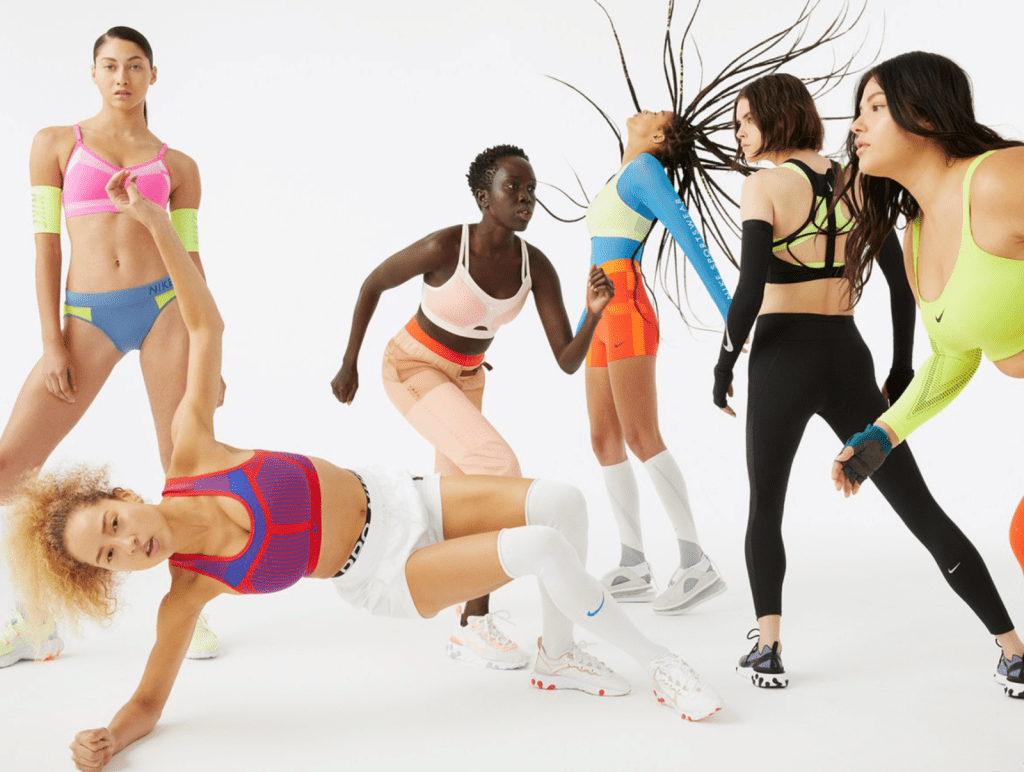Puma and Nike appear as though they may have come to a resolution in their battle over “footware,” the trademark that Nike has been angling to register in the U.S. and beyond. On the heels of a win for Nike in May when a court in the United Kingdom dismissed Puma’s appeal (after a UK Intellectual Property Office hearing officer rejected its bid to block the registration of Nike’s mark), thereby, paving the way for Nike’s application for the “footware” mark to proceed in the registration process, counsel for Puma alerted a domestic trademark body that it was withdrawing its challenge against Nike’s “footware” mark in the U.S.
In a filing on Thursday, Puma’s counsel from Leydig, Voit & Mayer, Ltd. submitted a filing to formally withdraw the opposition it has been waging against the Nike trademark “with prejudice.” The withdrawal comes just over a year after German sportswear brand initiated opposition proceedings with the U.S. Patent and Trademark Office (“USPTO”)’s Trademark Trial and Appeal Board (“TTAB”), taking aim at the trademark application that Nike filed in March 2019 for the “footware” mark for use in connection with computer hardware modules, electronic devices, and computer software. In the wake of sending a “letter of protest” to the USPTO arguing that that “footware” is a “descriptive” term, and thus, ineligible for registration, Puma started an opposition battle in June 2020, asserting that Nike’s potential registration should be blocked on the basis that it is a “merely descriptive” term for technology-driven footwear designs.
Specifically, Puma argued that the Beaverton, Oregon-based sportswear titan’s “footware” trademark “is phonetically equivalent to and a misspelling of the word ‘footwear,’” making it “a generic term for products sold in commerce, namely, footwear,” and not an indicator of a particular source of goods/service, which is precisely the purpose of a trademark. (It is worth noting that Nike does not list footwear as a class of goods in its application; instead, it is claiming rights in classes 9, such as “computer hardware modules for receiving, processing, and transmitting data in Internet of things electronic devices;” 38, including, “telecommunications services, namely, transmission of data by means of telecommunications networks, wireless communications networks and the Internet;” and 42, “application service provider featuring application programming interface software for integration of third-party applications to allow an interactive user experience.”)
In addition to its genericness claim, Puma argued that Nike’s mark is also ineligible for registration because the Nike is far from the only party in the business of selling products that “combine footwear, hardware and/or software technologies.” In fact, Puma claims that it started “manufacturing and selling footwear incorporating computer technology at least as early as 1986,” while other companies, such as Under Armour, Altra, and Samsung, are similarly offering up tech-centric footwear products.
According to Puma, such a prevalence of rival tech-centric footwear products likely means that “consumers are accustomed to seeing and purchasing products that combine products and technology, including products pairing software and/or hardware technologies with footwear.” And as a result, they understand that the word “footware” is used to generally “describe software combined with foot products, including footwear,” and not to indicate the products of a single manufacturer. “Just as consumers understand that spyware describes software combined with spying,” Puma alleged that “they will also understand that ‘footware’ describes software combined with foot products, including footwear.”
Ultimately, Puma claimed that if Nike is granted a registration for the “footware” mark, “it would receive exclusive rights over a term that is descriptive and prevent competitors, including [Puma], from using such a descriptive term in the marketplace,” and thus, requested that the TTAB sustain its opposition and refuse registration for Nike’s mark.
While the parties’ spat has seemingly come to a close in the U.S., there is still a chance for further developments in the UK, where Puma can seek intervention from the Court of Appeal. And elsewhere, applications for “footware” are currently pending, with Nike seeking registrations for the mark in India, Mexico, New Zealand, the Philippines, Canada, and Australia.











